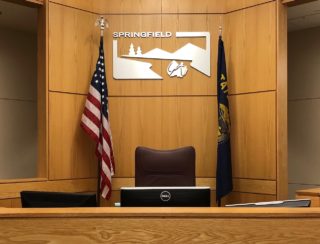Springfield Municipal Adult Rehabilitation and Treatment Court (SMART)
The Springfield Municipal Adult Rehabilitation and Treatment Court was established in November 2023, with operations beginning in January 2024. This program’s intent is to capitalize on the decades of specialty court research to provide comprehensive treatment for individuals in our criminal justice system.
Treatment Court will provide a dual pronged approach for individuals to tackle their substance use or co-occurring disorder as well as providing support and structure to change their life circumstances. The Treatment Court team will partner with Lane County Parole and Probation, Quality Research Associates, Emergence, Springfield City Prosecutor, the public defender, and the Springfield Police Department to staff this program.
The Springfield Municipal Adult Rehabilitation and Treatment Court (SMART) is a minimum 12-month program consisting of four highly structured evidence-based phases. See https://allrise.org/ for further details. Involved participants are required to attend individual and group treatment sessions, submit to random drug testing, have frequent court appearances, and counseling as appropriate. Individuals must meet milestones to progress in phases and to graduate. At a minimum, individuals must be gainfully employed or in advanced schooling, have their GED or high school diploma, and have provided a give back to their community.
For additional information, please continue monitoring this website. Program and participation manuals will be uploaded shortly.
Affiliate Links
Disclaimer
This project was supported by Grant No. 15PBJA-23-GG-04283-DGCT awarded by the Bureau of Justice Assistance. The Bureau of Justice Assistance is a component of the Department of Justice’s Office of Justice Programs, which also includes the Bureau of Justice Statistics, the National Institute of Justice, the Office of Juvenile Justice and Delinquency Prevention, the Office for Victims of Crime, and the SMART Office. Points of view or opinions in this document are those of the author and do not necessarily represent the official position or policies of the U.S. Department of Justice.
The information on this webpage is for informational purposes only and does not constitute legal advice. While we make every effort to provide accurate information, there is no guarantee as to the accuracy. Please contact an attorney to obtain advice with respect to any specific legal matter.

